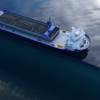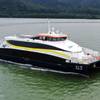The London P&I Club has highlighted the major role that shoreside failings
can play in substantial claims, emphasizing that safety requires input from
all sides of the shipping industry.
In the latest issue of its StopLoss Bulletin, the Club cites the recent case
of a Panamax bulk carrier loading in the U.S. which was warping along the
berth when a supporting timber dolphin collapsed, together with a 200ft
stretch of connecting walkway. Subsequent investigations revealed that the
berth - built more than fifty years ago - had been poorly and
inappropriately maintained. In particular, underwater deterioration of the
dolphin had led to a significant reduction in its load capability,
jeopardizing the safety of the entire structure.
Investigations into another, similar casualty, in Argentina, revealed that
Yokohama fenders on the berth had not been inflated to the correct pressure,
and had not been renewed at the end of their recommended lifespan.
The owners in each case are pursuing legal action against charterers to
recover losses resulting from the casualties, on the basis of charter party
provisions concerning berth safety.
The Club points out that safety should not focus solely on ships and their
operators, and that heavy responsibilities must also rest with those running
the facilities at which ships call. "Regulation of ships and their operators
alone will not suffice," concludes the Club.
Featured videos

Tracking Foreign Vessels Working in the U.S. Jones Act Market

Unlock Onboard Data Efficiencies

Inmarsat Enhances Service to Drive Digitalization
Subscribe for
Maritime Reporter E-News
Maritime Reporter E-News is the maritime industry's largest circulation and most authoritative ENews Service, delivered to your Email five times per week









